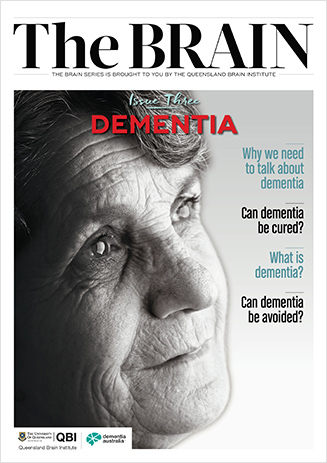Profile: Sue Pieters-Hawke
 After caring for her mother with dementia, Hazel Hawke's daughter has become an activist for improving the lives of affected individuals.
After caring for her mother with dementia, Hazel Hawke's daughter has become an activist for improving the lives of affected individuals.
Since caring for her mother, Hazel Hawke, daughter Sue Pieters-Hawke has become an activist for dementia reform.
For many years she was her mum’s care partner – or as she prefers to call it, “partner in crime” – while her mum lived with dementia.
“Going into the whole experience I was as ignorant as most other people – sharing the myths and misconceptions of dementia,” says Sue.
This led to Sue’s passion for challenging deeply ingrained and often inaccurate perceptions about the disease.
“Mum lived longer than the average person with dementia, and during that time we worked with her to reach for a better way to support and help her live a full life.”
“Initially, we bought into the misconceived social prescription for dealing with the disease, which was to 'take over' her life, rendering her the ‘passive bystander’, but we soon changed our approach. We agreed to view dementia as another form of cognitive impairment or disability and decided that person, being Mum, had the right to continue to do well and live well in the community.”
Hazel wanted to continue to be active and Sue didn’t try to stop her.
“Mum always had a high-risk appetite so we continued to support her in deciding her own risks. She loved to walk and bush bash so she still did this and if she lost her way her neighbours would lend a hand – she was always making new friends.”
Sue instinctively took the path of supporting her mum to be the main articulator and decision maker even as the disease progressed.
“Mum refused to let Alzheimer’s define her or stop her living her life. She actually got quite bolshy at times and would say, ‘Back off, bossy boots – I’m running my life!’”
Sue’s belief is that dementia is a complex syndrome and there is no silver bullet. “The bottom line is that anything that is going to improve quality of life, whether that be a sustained model for institutional care for some people at later stages, community acceptance and support, or research should be applauded.”
“Pure science can address the mechanism of some of the causes of this disease and offer hope for early identification …that’s why research is crucial.”
“Dementia is very sexy as it is ripe for reform, recrafting and making significant changes. There is enormous potential for shifting the narrative and making the landscape better for people living with dementia, and for those who care about them and with them.”

